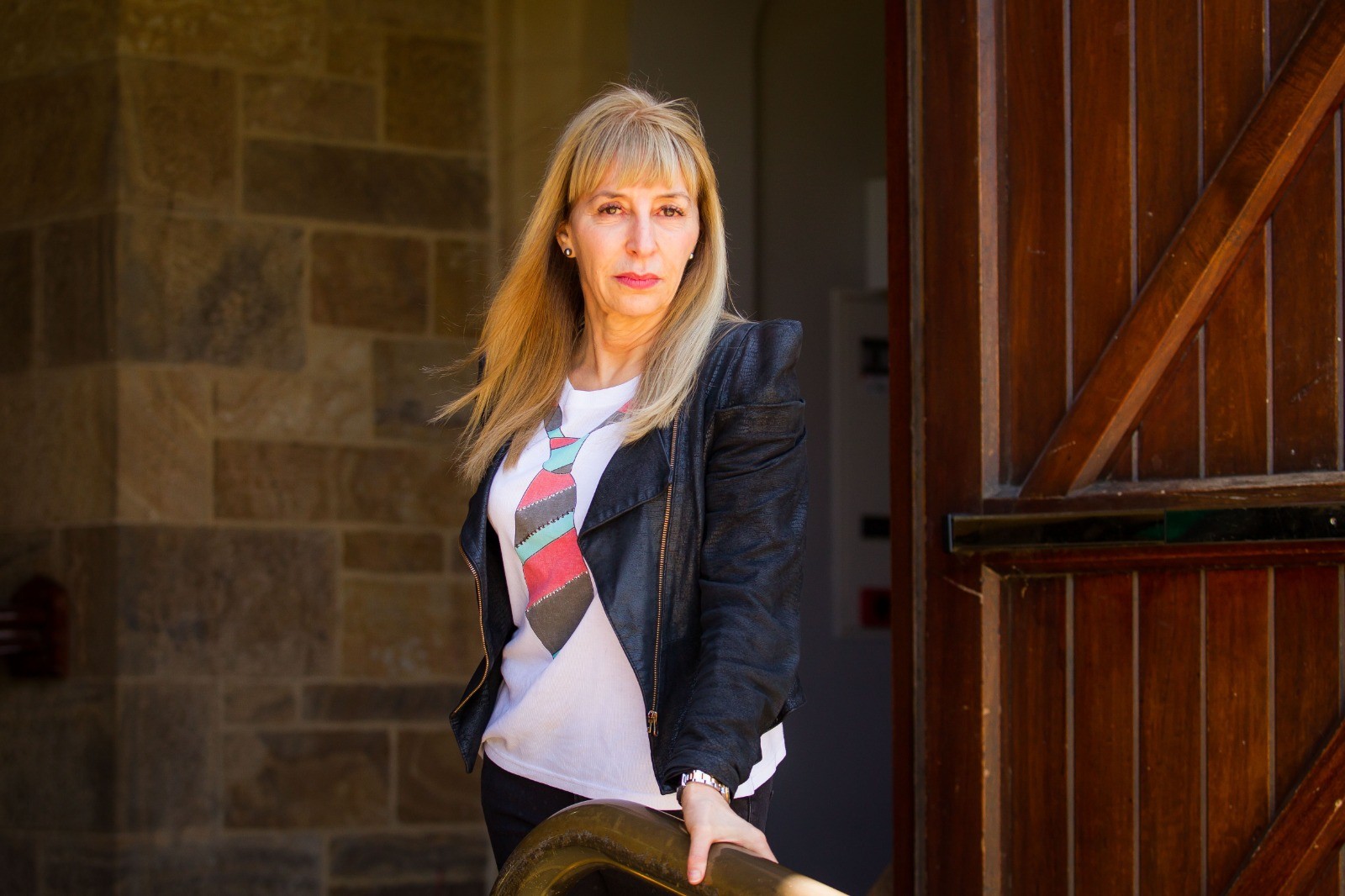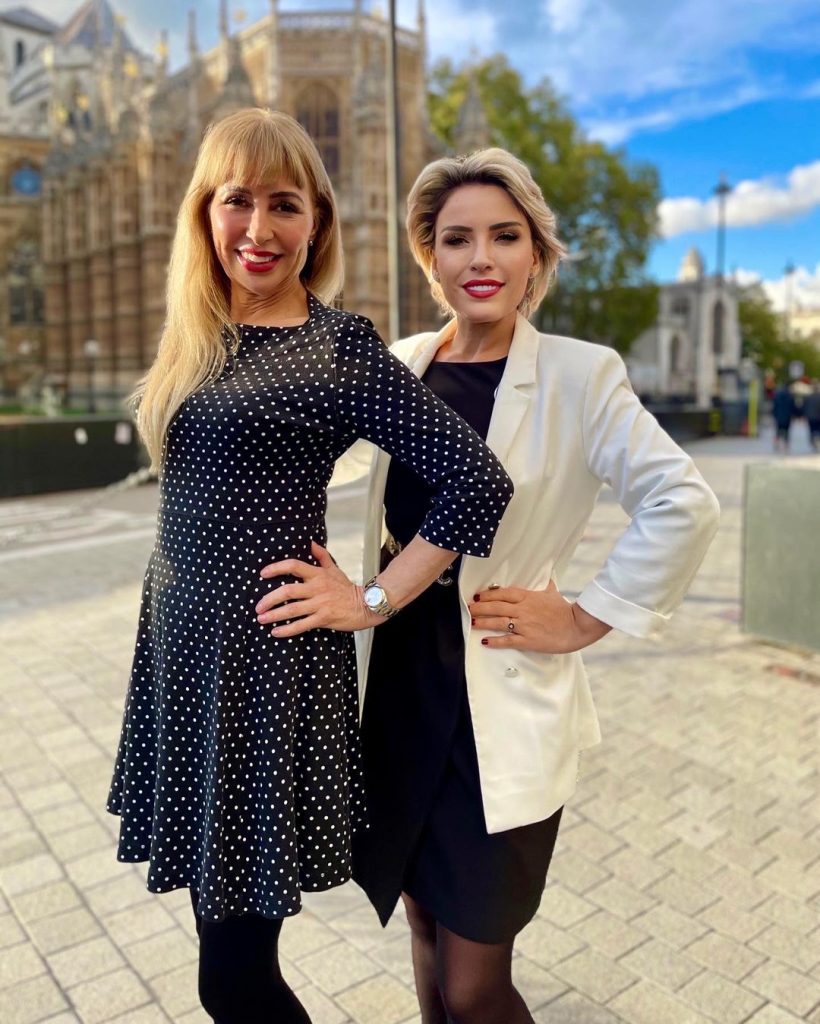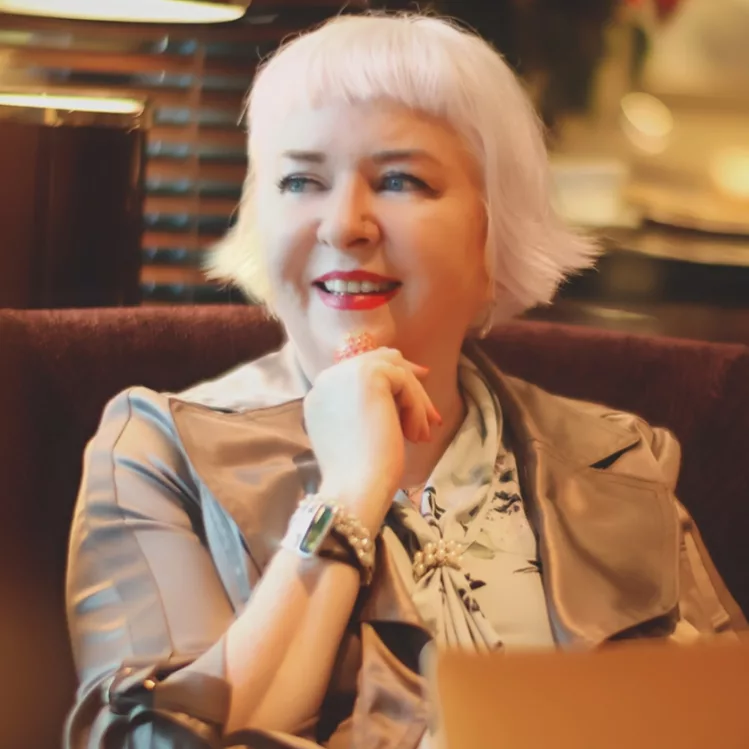
Baroness Susan Greenfield: Unravelling the Power of the Human Mind
By Mirela Sula
Stepping into the House of Commons, I had the pleasure to meet world-renowned scientist Baroness Susan Greenfield. Together we unravelled the power of the human mind, from consciousness, mental health, social media to the metaverse.
Everyone’s greater mission should be to try and find something they genuinely love doing, irrespective of how much money they’re paid.
You have dedicated your life to raising awareness for Alzheimer and Parkinson’s, as well as educating people about the brain’s function. Where did this interest stem from?
It actually started very unconventionally – I hated science at school, it was all about the amoeba splitting into two and that seemed very unexciting. You would draw one circle, then you drew an egg timer, and then two circles, and it did not excite me at all. Similarly, chemistry was about distilling water and no one told me why distilling water was relevant. Science did not excite me – what excited me was literature, history and why people started wars so I dedicated my time to specialising in this area. I gave up Science happily when I was 16 and for my advanced education, choosing instead to study Latin, Greek, Ancient History and Maths. If someone had told me I was going to be a scientist, I would have laughed at them. Sometimes it’s refreshing to enter a field as an outsider. It was much later in my life, when I decided to go to university to pursue philosophy, then psychology and brain sciences. I was able to ask the basic questions.
What is consciousness? We take consciousness for granted – we can’t exactly define what this experience is. There are really exciting questions that have yet to be explored and it struck me that it could be approached by using the techniques that I came to very late in life. My doctorate was in brain science techniques and I did not consider this path ‘work.’ We hear the phrase work-life balance, but for me, it is what I do and I can’t imagine not doing it. For me, it isn’t simply a way of earning a living. When I was employed by the university, I was astonished that I got paid for this.
It brings so much joy when you discover your gift. Not many people are asking the right questions and the quality of your question defines the quality of your life. However, you dared to raise these questions at a very early age. What made you different?
It’s a really important message to get across that for someone to have something they really enjoy, it doesn’t matter what kind of trainers they have, or how rich you are. If you do something you really enjoy that helps you get up in the morning, that is your identity. Everyone’s greater mission should be to try and find something they genuinely love doing, irrespective of how much money you’re paid. I was given a lot of self-confidence by my mum and my dad because they were seen as quite unusual. My dad was Jewish, and my mum was Protestant Christian, and they met just after the war. When they got married there was still a lot of anti-Semitism and prejudice against what was then regarded as a mixed marriage. My two grandmothers wouldn’t talk to each other because of their marriage, not because they didn’t like each other, but because they were from different religions. So understandably, I grew up already feeling different and having to be proud of who I was. I couldn’t just belong to one tribe. My mum had also been on the stage as a dancer, entertaining the troops in the war so she was very theatrical. That led to ballet school as soon as I could walk, and I was on the stage by two years old. A childhood like that gives you the confidence to present and perform. They had no money but by the same token, they helped me realise that money was irrelevant in one sense, and what really mattered was what kind of person you were, what you made of your life and how resilient you were. I was lucky to be poor and lucky to be born into a mixed marriage, with parents who were eccentric and unconventional.
It’s not what you have but what you do with what you get. You’ve always had a positive outlook of life, whether that’s your career or personal life. Can you tell us more about this?
I have always been like that. Looking back at the negative aspects in my life, I think well if that hadn’t happened, this would never have happened. Everything happens for a reason. It’s made me a stronger person, quite often something that seems negative, actually helped you do something else.
Unlike my friends, we couldn’t afford holidays abroad and parents couldn’t afford to gift me with expensive things. I spent a lot of my time reading, dreaming, drawing pictures or creating stories for myself. I think it’s very important for kids to be bored like I was because that is when you provide your own stimulation. When you’re constantly being pushed from one club to another, you’re unable to develop an inner narrative, an inner world that’s yours, that’s your identity. When you’re a kid one of the most exciting things you can say is, let’s make up a game.

What distinguishes the adult human brain or mind is its capability of escaping the present moment…
Everything comes back to the mind however, there are many people who choose not to invest in their mindset. What can people do to shift that mindset?
I think what’s really important for people, especially nowadays where people feel respect and disrespect, is this new craving sparked by social media to be acknowledged but at the same time being conforming. People have a rather fragile sense of their own identity and that gives them psychiatric issues, problems and worries even if it’s not extreme. How can you give people a strong, resilient mind? This is a problem nowadays, you have to have a life story – you don’t just exist in the moment, you have a past, you have a present, and you have a future. You’re on a journey. Human adults, unlike small children and animals, can escape the present moment. What distinguishes the adult human brain or mind is its capability of escaping the present moment – you can go into the future with words or you can think of the past. You’re not imprisoned by your senses in the present. A lot of digital technology anchors people in the present too much. When you sandwich your present with a past and a future, you will notice your story. Simple things from cooking, reading books to gardening all have a beginning, middle and end. The latest invention of Mark Zuckerberg’s multiverse frightens me – it’s taking people away from the presence of the five senses, three dimensions and reality. It’s cocooning us into the cyber world which incidentally, the non-privileged part of the world won’t be able to have. I see this as one of the saddest things to do for human beings – why not enable them to be outside, to exercise, explore new food and hug each other? We require a life story, not to live in an artificial metaverse.
We tend to blame governments, parents, and every other person when we’re in a dark zone, why do you think people come up with excuses?
A lot of people don’t know what they want. I’m very lucky because I’ve discovered an occupation, something I really enjoy doing, that I find fulfilling and exciting. There must be something in your life that you enjoy and you have to let yourself be open to those opportunities. It won’t necessarily be well paid, but it will be something that’s yours, that you can treasure, that you can shape and gives you a reason to get up in the morning. We must help people have the confidence to break through and find that.
Mental health has deteriorated since the pandemic – how can someone overcome the feelings of depression and anxiety?
A really easy thing to do is go for a walk, get some fresh air. As Nietzsche said, ‘walking enables thought,’ and the man who developed the treatment for Parkinson’s said, ‘thinking is movement confined to the brain.’ The Greeks realised that your steps echo the steps of thought. People have now discovered the therapeutic effects of greenery and the benefits of physical exercise for mental health.
You have this drive and energy to support and love people. Collectively, we come from a culture where it takes time for some people to get out of that mindset and they don’t need to validate themselves. You didn’t achieve your success overnight.
Someone said to me, a woman takes on a job to get something done and a man takes on a job to be someone. Women, especially in many cultures and in many scenarios, are suppressed. I think it comes down in the end to having mentors. People are either frightened or trying to impress people, imposing their status. You don’t have to try and be better than someone else. You just have to be yourself, have fun and support each other. And I wish that kind of buzz could be more prevalent. Anything that’s worth doing comes with hard work and that’s why I feel sorry for rich kids, because if you haven’t had to work hard for something, you don’t appreciate. If you have to really work hard, it means so much more.
As a scientist, what is something that we can spread out there and give a powerful message for people, especially at this time of crisis, to take action to activate their mind?
Your mind is unique. We all have a brain, but the human brain has adapted to that. So even if you’re an identical twin, you’ll still be unique. Everything you do will literally leave its mark on your brain. I remember once talking about drugs to school kids and these school kids said, well, I’m not going to let drugs hurt my brain, but you are your brain.
You’re not separate from your brain. Look after your brain because that’s all you are. That’s your identity. That’s why we fear the outside so much. And the way to look after your brain is to do things that engender a life story, such as walking, exercise, eating together, dancing. Give yourself time to let the thought process unfold. You don’t have to be rushing around all the time. It’s only when that happens that you’ll have a new idea.
A message I will say to mothers is don’t try and protect your kid, help them cope, because problems are going to come. You can either sit next to Bill or Ben. Bill has never been dumped. He’s never lost his job, he’s never been ill, he’s never had any problems. Or you can sit next to Ben, he’s overcome a serious illness, he’s overcome a tragic love affair. He’s had job problems. Now, who would you rather sit next to? You want someone who has experience, the whole human experience, because that’s what makes you a rounded human being. Don’t shy away from those things.





